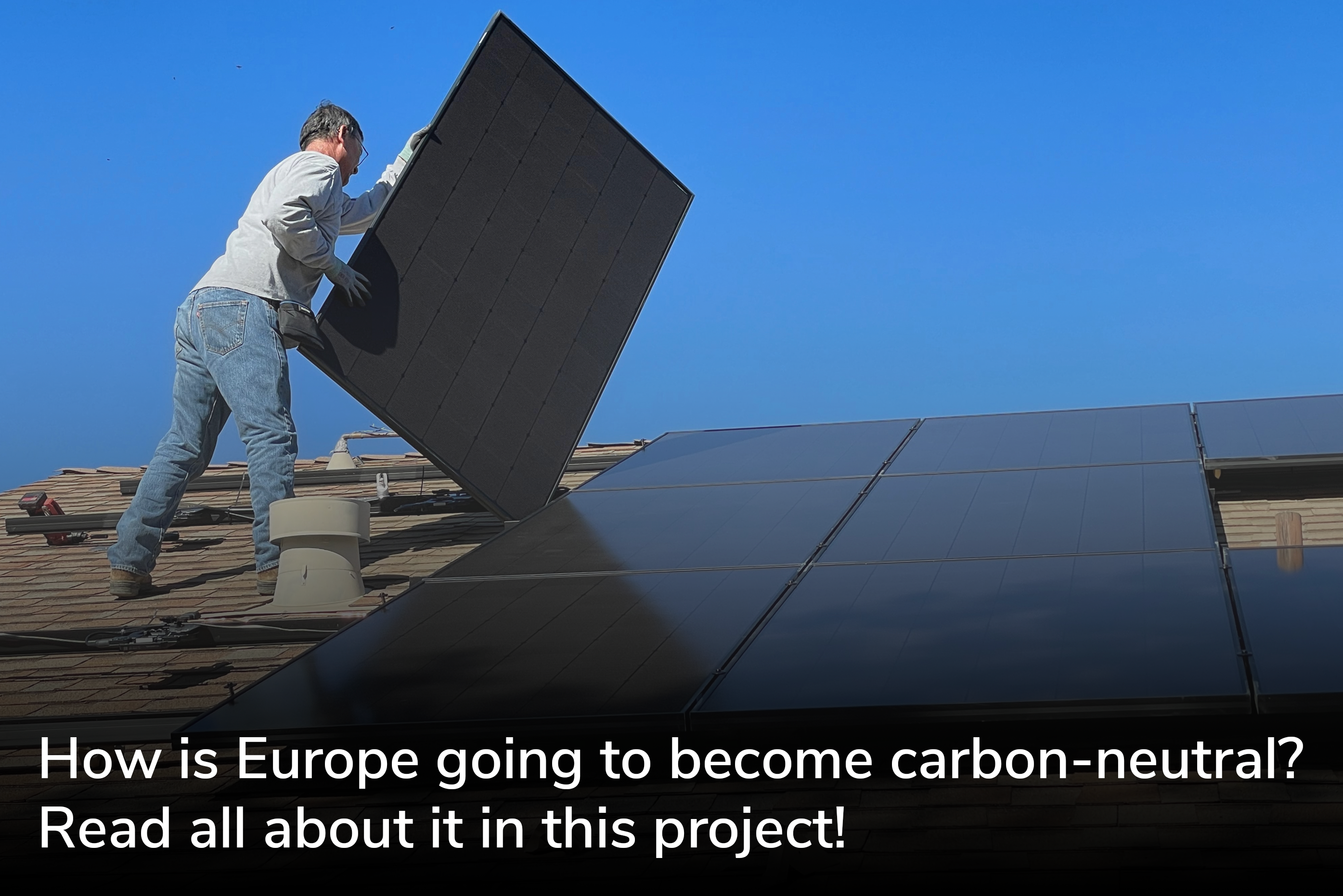
The European Parliament failed to reach an agreement this week on a crucial climate bill from the package of a total of 14 proposals put forward by European Commissioner Frans Timmermans. After a chaotic vote in the plenary chamber in Strasbourg, it is still unclear how much of a delay there will be to Europe’s climate ambitions.
The conflict between the Christian Democrats on one side and the Social Democrats, Liberals and Greens on the other hinges on the future of the CO2 emissions rights trading system..
CO2 import levy versus free emission rights
The European Union wants to introduce a CO2 import levy for products imported from outside Europe to the continent. This is needed in order to protect European industry as climate standards become increasingly stricter over the years to come.
It is only by making manufacturers inside and outside the EU pay as much for the CO2 released in their factories will you be able to prevent the demise of European industry as a consequence of European climate policy.
The problem with introducing an import levy is that, according to the rules of the World Trade Organization, the protection of European companies must not tip the scales to the disadvantage of manufacturers from the rest of the world. This means that as a result of the new import levy on CO2, the free emission rights that European companies enjoy for a portion of their CO2 emissions have to go.

2032 or 2034
The political disagreement that has brought the process of climate legislation to a political standstill is over the pace at which those free market rights should be removed. The Christian Democrats want to complete this operation by 2034 while the left-wing, liberal and green parties are advocating for 2032.
The Dutch Social Democrat Mohammed Chahim is charged with seeking a majority in parliament for the import levy on CO2. It was his decision to dig his heels in and not agree to the proposal put forward by the Christian Democrats that stalled the political process this week.
He justified his tough stance after the vote: “If you calculate how many extra CO2 rights there will be on the market, then this is a factor that exceeds the European Commission’s proposal. I think that sends a very bad signal. There is a lot of lobbying going on. But if I can stop this, then I will stop it”.
Budge a little bit
His counterpart in the Christian Democrats is also a Dutch politician, Esther de Lange. She says that her party is in favor of an ambitious climate policy, but in the debates in Strasbourg she always emphasized that the political aspirations must remain manageable for European industry. Phasing out free emission rights too quickly would be too much of a good thing.
“They will have to budge a little bit and we will have to budge a little bit too. We are going to have those conversations now,” is her comment.
The people’s representatives hope they can still reach agreement this month. There is consensus on almost the entire law, Chahim and De Lange claim, except for the qualifying the year. In the corridors of parliament the solution seems obvious: if it is a question of the year 2032 or 2034, then you can meet in the middle in 2033.
Social Climate Fund
Since no political agreement has yet been reached on the new emission rights trading system, no decision has been made on the establishment of a Social Climate Fund. That fund also stems from the pen of Frans Timmermans and is intended to provide subsidies to make homes more sustainable for families with limited funds of their own.
This is a fund amounting to several tens of billions of euros and must be financed with the money generated by CO2 emission rights trading. Content-wise, the political parties are in agreement, but because nothing has yet been decided about emission rights trading, the financing of the fund is uncertain.
Esther de Lange has this to say about the postponement of the vote on the Social Climate Fund: “I’ll just put on my Dutch hat for now. As the Netherlands, we have always said: We are only willing to look at a social climate fund if we know where the funding is coming from. We’re not prepared to pay for it from the Dutch treasury”.
End of the internal combustion engine
European politicians did agree on another historic decision: from 2035 onwards, the marketing of cars powered by fossil fuels will be prohibited in the European Union.
A Dutch politician is also responsible for the parliamentary handling of this law, namely Jan Huitema of the liberals.
He says that even though it will remain permissible to build internal combustion engines that run on hydrogen and thereby emit no emissions, this decision basically marks the end of the more than 100-year-old technology.
Opposition to the complete ban on cars that emit CO2 was especially fierce in Germany. The car industry, including the companies that supply parts for engines, is good for hundreds of thousands of jobs. In order to retrain people, the Parliament is proposing to set up an employment fund.,
Huitema expects that the industry will now put all its efforts into electric driving with batteries or fuel cells: “Also because the technology of electric cars is much simpler than the combustion engine with all of its valves, the crankshaft and a gearbox. You won’t have to deal with any of that any more”.

Employment opportunities
Nevertheless, Huitema does not think there will be any negative impact on the number of jobs. Phasing out the fossil car industry will take a long time and there will still be some petrol-powered cars driving around that will need to be serviced even after 2035.
“There will be a lot of people retiring at some point between now and then. The effect on the workforce is nonexistent. On the contrary, I think there will be more employment opportunities, except that we will probably also have to retrain people,” says the liberal farmer’s son from the Dutch province of Friesland.
Secondhand market
Now that the industry knows where it stands, politicians are hoping that investment in technological innovation will soar. Prices must come down as quickly as possible if electric driving is to be no longer something that only the rich can afford. “I want more models to come on the market quickly and a second-hand market to be created as soon as possible,” Huitema says.
Shortages of rare and precious raw materials could impede developments. Many of the metals needed for the manufacture of batteries, chips and magnets come from China. According to Huitema, the European Union must not be naive and must act “assertively” to secure the supply of essential raw materials for Europe.
Politically uncontroversial
But he also believes that change is very much afoot when it comes to the materials needed to manufacture electric cars: “Lithium is not the problem. And cobalt and nickel will also no longer be used in future batteries. Tesla has already stopped using it”.
As symbolic as the decision to ban the internal combustion engine is, it is practically politically uncontroversial in Brussels. Because not only did the European Parliament vote for it with a large majority, but also the member states of the European Union are already very close to passing it. Huitema expects that the political decision will soon be turned into a formal law.

